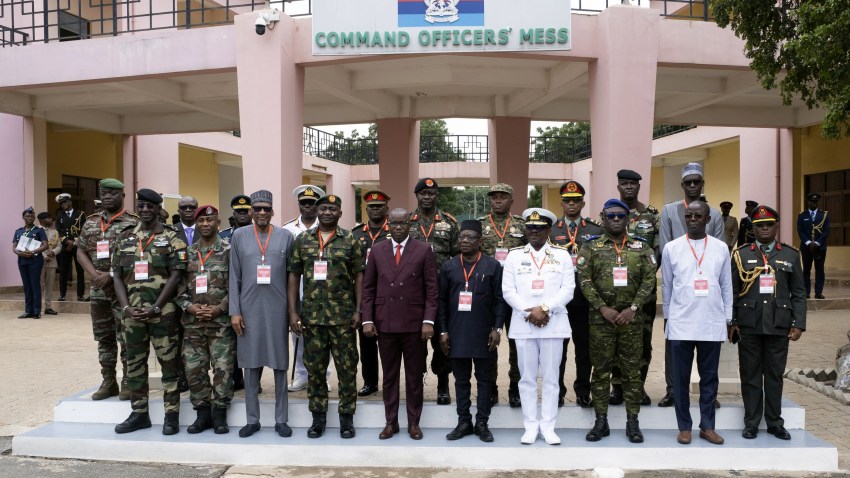As supporters of the military junta that seized power last month in Niger try to force the departure of French troops from the country, the crisis there has come to symbolize the crumbling of France’s neocolonial sphere of influence in Africa. With remarkable symmetry, at almost exactly the same time, speculation has remained rife over how the seeming death throes of the Wagner Group after Yevgeny Prigozhin’s demise might affect Russia’s efforts to expand its influence in African states like Libya, Mali and Sudan. And in the midst of these and other conflicts across Africa, every move, meeting and security partnership organized by the U.S. and China is extensively debated by observers who frame each new development in the context of great power rivalries.
These depictions of Niger, Sudan and other African states as mere backdrops to geopolitical conflicts between distant outsiders frequently neglect the role played by regional institutions, neighboring states and nonstate actors, portraying them as secondary players if at all. But in the case of Niger, for instance, the economic embargo imposed by Nigeria and its partners in the Economic Community of West African States, or ECOWAS, has caused the military junta in Niamey far greater difficulty than any maneuvering by France. Elsewhere in Africa, the jockeying for position among regional states around conflicts in eastern Congo and Sudan have had more far-reaching impacts on escalation dynamics than any U.S. diplomatic initiative or Russian arms shipments.
Interpreting every geopolitical crisis in the context of great power conflict often distracts from wider regional trends that will ultimately have a global impact of their own. The rapidly deteriorating security situation across West Africa is a case in point. To an extent this dynamic is the product of survival strategies pursued by fragile military regimes that have tried to focus popular discontent over state failure on the dysfunctional legacies of France’s so-called Francafrique system of neocolonial control. Paris’ effort to maintain a neo-imperial sphere of influence in partnership with regional autocrats has certainly played a crucial role in generating social instability. But the military juntas that have seized power in Mali, Burkina Faso and now Niger have stoked anti-French sentiment—and in the case of Mali, courted assistance from Russian mercenaries—to deflect public frustration away from their own inability to regain territory from jihadist insurgents, too say nothing of restoring economic growth.

